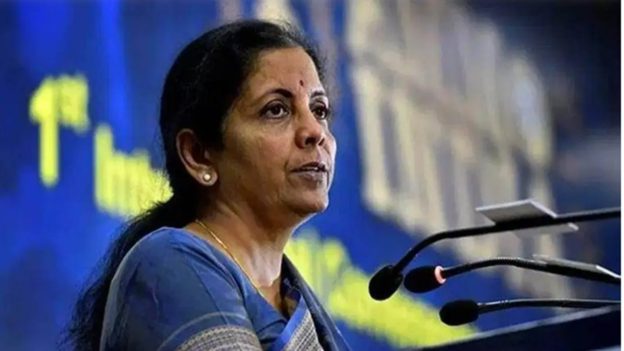At the 15th Conference of the Parties (COP-15) of the UN Climate Change Conference in Copenhagen in 2009, developed countries had committed to a collective goal of mobilising $100 billion a year by 2020 for climate action in developing countries.
The government and regulators are working towards the implementation of a common KYC (know-your-customer) process for undertaking financial transactions across institutions, finance minister Nirmala Sitharaman said on Tuesday. This will cut paper work for both common men and businesses, and reduce their compliance burden.
Sitharaman also stressed the need for “more global co-operation and probably less talk” on fighting climate change, in a veiled reference to the failure of the usually-vocal developed nations in meeting their financial commitments to help developing countries better tackle global warming.
The future of finance, the minister said, is going to be “VUCA” (volatile, uncertain, complex and ambiguous). In India, the future will be driven more and more by digitisation of banking and other related services, and there is a need to stay ready to prevent any “black swan” events.
Commenting on the common KYC, Sitharaman said: “There is a central repository which takes care of central KYC. We are also working in such a way that once you have given your KYC, it can be applicable at various institutions at various times for various requirements that you may have. And you may not have to do it each time even if your businesses are slightly different.” She was speaking at a Ficci event.
Also read: No need for Aadhaar, PAN for bank accounts soon! Will CKYC be a boon or bane for customers?
The issue of a common KYC for banking, insurance and capital markets was deliberated on at the meeting of the minister with various financial sector regulators last week. Such a system will cut reduce paper work for various services like opening bank or a demat account or making new investments, etc.
Dwelling on climate change, the minister asserted that the some of the commitments made by Prime Minister Narendra Modi in Paris COP-21 have been fulfilled well ahead of the deadline. This has been done “by the sheer drive, political will, and push for renewable energy and so on – but with completely Indian money”.
“We clearly are showing progress towards renewables, we are moving towards solar… But we need more global co-operation, probably less talk,” she said.
At the 15th Conference of the Parties (COP-15) of the UN Climate Change Conference in Copenhagen in 2009, developed countries had committed to a collective goal of mobilising $100 billion a year by 2020 for climate action in developing countries. This was to not just ensure that poor and developing nations adapt to climate change but also tackle global warming. Despite subsequent reiteration, this commitment has not been kept. According to an estimate by the Organisation for Economic Co-operation and Development, only $83.3 billion was mobilised for climate finance in 2020, well short of the initial $100-billion target.
At COP-26 in Scotland last year, India called for raising the annual climate finance funding to as much as $1 trillion on account of the new promises made. India now targets net zero emissions by 2070 and meeting half of its energy needs with renewable energy by 2030 among other pledges.
“All of us will have to do something towards it. But, no transfer of technology (by developed countries) will happen, no monies will be pooled in to collectively help (poor and developing) countries. But yet, every one wants the ambition to be further higher and higher. It is just not going to be possible for many countries,” she said.
https://www.financialexpress.com/economy/working-on-common-kyc-for-financial-transactions-fm/2680680/





